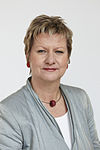| |||||||||||||||||||||||||||||||||||||||||||||||||||||||||||||||||||||||||||
All 181 seats in the Landtag of North Rhine-Westphalia 91 seats needed for a majority | |||||||||||||||||||||||||||||||||||||||||||||||||||||||||||||||||||||||||||
|---|---|---|---|---|---|---|---|---|---|---|---|---|---|---|---|---|---|---|---|---|---|---|---|---|---|---|---|---|---|---|---|---|---|---|---|---|---|---|---|---|---|---|---|---|---|---|---|---|---|---|---|---|---|---|---|---|---|---|---|---|---|---|---|---|---|---|---|---|---|---|---|---|---|---|---|
| Turnout | 7,870,412 (59.3% | ||||||||||||||||||||||||||||||||||||||||||||||||||||||||||||||||||||||||||
| |||||||||||||||||||||||||||||||||||||||||||||||||||||||||||||||||||||||||||
 Results for the single-member constituencies. | |||||||||||||||||||||||||||||||||||||||||||||||||||||||||||||||||||||||||||
| |||||||||||||||||||||||||||||||||||||||||||||||||||||||||||||||||||||||||||
The 2010 North Rhine-Westphalia state election was held on 9 May 2010 to elect the 15th Landtag of North Rhine-Westphalia. The outgoing government was a coalition of the Christian Democratic Union (CDU) and Free Democratic Party (FDP) led by Minister-President Jürgen Rüttgers.
The election was a defeat for the incumbent government, but failed to produce a clear outcome. The CDU suffered its worst-ever result, falling over ten percentage points to just 34.6%. The opposition Social Democratic Party (SPD) led by Hannelore Kraft also recorded a decline and finished just 0.1% behind the CDU; both parties tied on 67 seats. The Greens recorded their best result to date with 12%, while the FDP achieved a small swing to 6.7%. The newly-formed Left party won 5.6% and 11 seats. Neither the incumbent CDU–FDP government (80 seats) or prospective SDP–Green coalition (90 seats) achieved a majority in the Landtag, with The Left narrowly holding balance of power.
Complex talks took place between all five parties, with the CDU and SPD each aiming for a coalition with the Greens and FDP, or a grand coalition between the two of them. The SPD and Greens also held talks with The Left. All discussions ended without success by mid-June. On the 17th, the SPD and Greens announced they would attempt to form a minority government led by Hannelore Kraft. They ruled out a confidence arrangement with The Left, but nonetheless relied on the party's abstention for the government's investiture to succeed. Kraft was elected Minister-President on 14 July on the second ballot, which required only a simple majority, with 90 votes in favour, 80 against, and eleven abstentions.
Cite error: There are <ref group=lower-alpha> tags or {{efn}} templates on this page, but the references will not show without a {{reflist|group=lower-alpha}} template or {{notelist}} template (see the help page).




